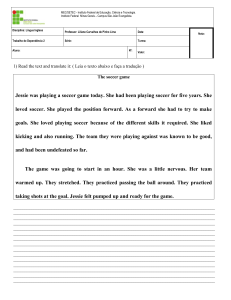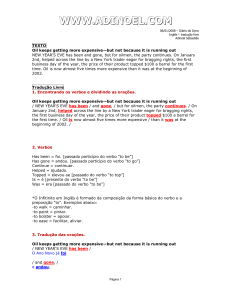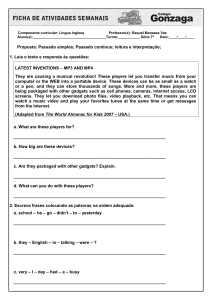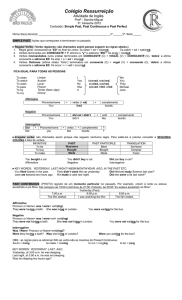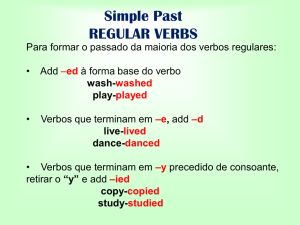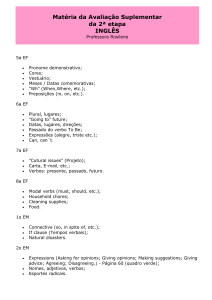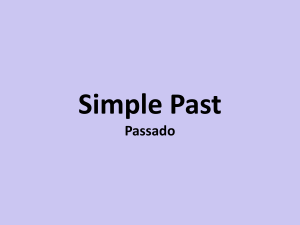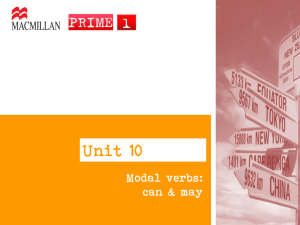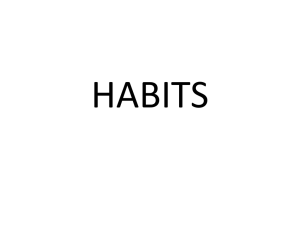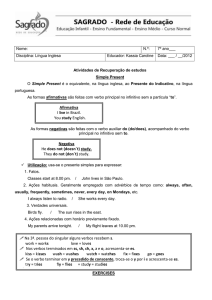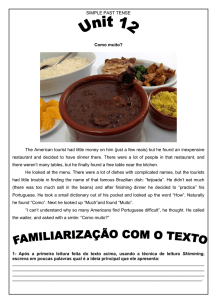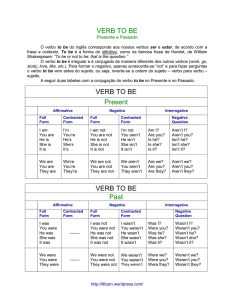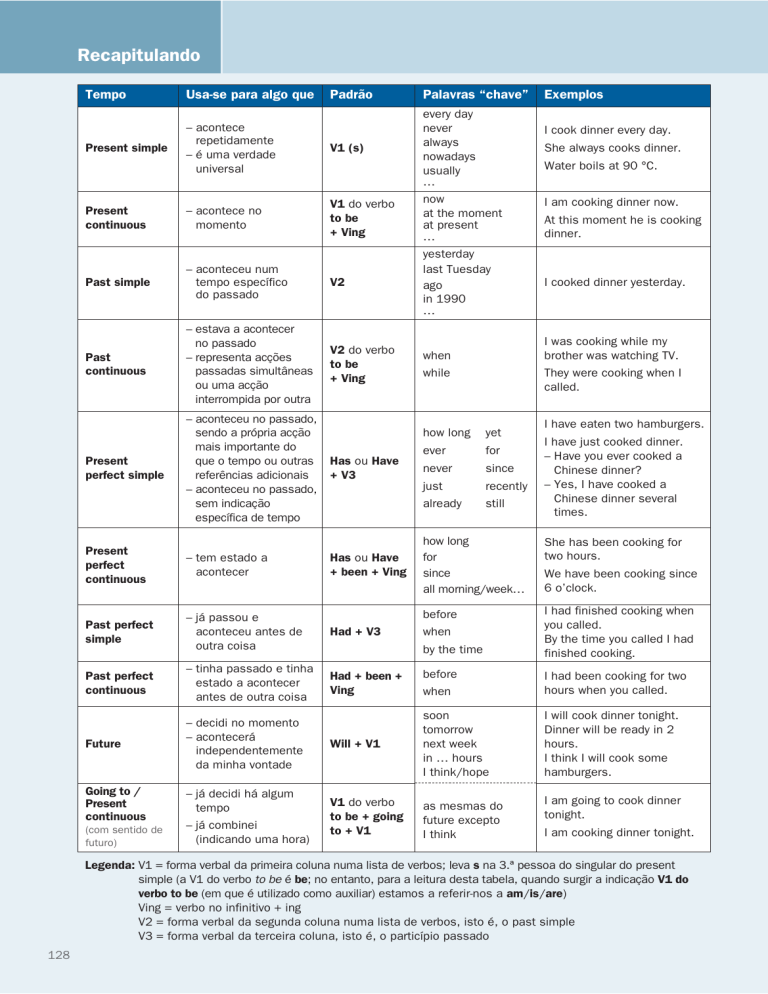
Recapitulando
Tempo
Usa-se para algo que
Padrão
– acontece
repetidamente
– é uma verdade
universal
V1 (s)
Present
continuous
– acontece no
momento
V1 do verbo
to be
+ Ving
Past simple
– aconteceu num
tempo específico
do passado
V2
Past
continuous
– estava a acontecer
no passado
– representa acções
passadas simultâneas
ou uma acção
interrompida por outra
V2 do verbo
to be
+ Ving
Present
perfect simple
– aconteceu no passado,
sendo a própria acção
mais importante do
que o tempo ou outras
referências adicionais
– aconteceu no passado,
sem indicação
específica de tempo
Has ou Have
+ V3
Present
perfect
continuous
– tem estado a
acontecer
Has ou Have
+ been + Ving
Past perfect
simple
– já passou e
aconteceu antes de
outra coisa
Had + V3
Past perfect
continuous
– tinha passado e tinha
estado a acontecer
antes de outra coisa
Had + been +
Ving
Future
– decidi no momento
– acontecerá
independentemente
da minha vontade
Going to /
Present
continuous
– já decidi há algum
tempo
Present simple
(com sentido de
futuro)
– já combinei
(indicando uma hora)
Palavras “chave”
every day
never
always
nowadays
usually
…
now
at the moment
at present
…
yesterday
last Tuesday
ago
in 1990
…
Exemplos
I cook dinner every day.
She always cooks dinner.
Water boils at 90 °C.
I am cooking dinner now.
At this moment he is cooking
dinner.
I cooked dinner yesterday.
I was cooking while my
brother was watching TV.
when
They were cooking when I
called.
while
how long
yet
ever
for
never
since
just
recently
already
still
I have eaten two hamburgers.
I have just cooked dinner.
– Have you ever cooked a
Chinese dinner?
– Yes, I have cooked a
Chinese dinner several
times.
how long
for
since
all morning/week…
She has been cooking for
two hours.
before
I had finished cooking when
you called.
By the time you called I had
finished cooking.
when
by the time
before
We have been cooking since
6 o’clock.
when
I had been cooking for two
hours when you called.
Will + V1
soon
tomorrow
next week
in … hours
I think/hope
I will cook dinner tonight.
Dinner will be ready in 2
hours.
I think I will cook some
hamburgers.
V1 do verbo
to be + going
to + V1
as mesmas do
future excepto
I think
I am going to cook dinner
tonight.
I am cooking dinner tonight.
Legenda: V1 = forma verbal da primeira coluna numa lista de verbos; leva s na 3.ª pessoa do singular do present
simple (a V1 do verbo to be é be; no entanto, para a leitura desta tabela, quando surgir a indicação V1 do
verbo to be (em que é utilizado como auxiliar) estamos a referir-nos a am/is/are)
Ving = verbo no infinitivo + ing
V2 = forma verbal da segunda coluna numa lista de verbos, isto é, o past simple
V3 = forma verbal da terceira coluna, isto é, o particípio passado
128

